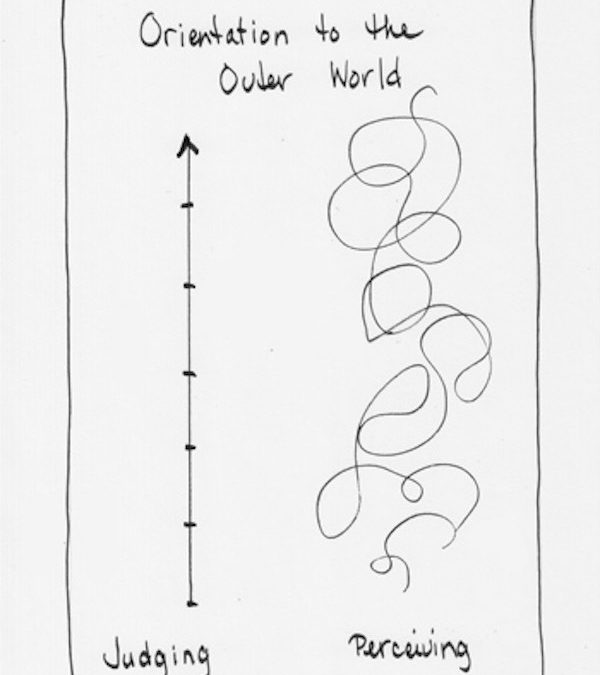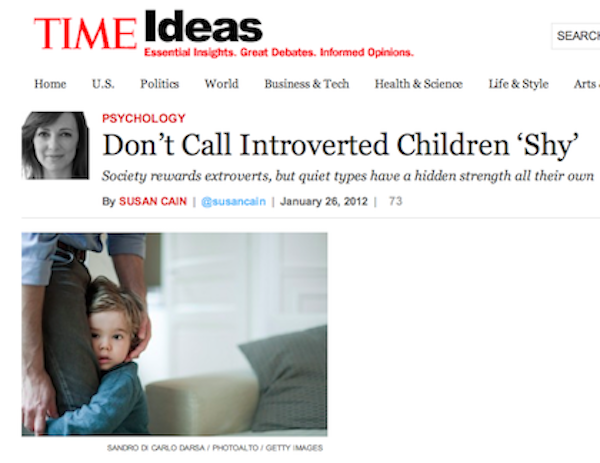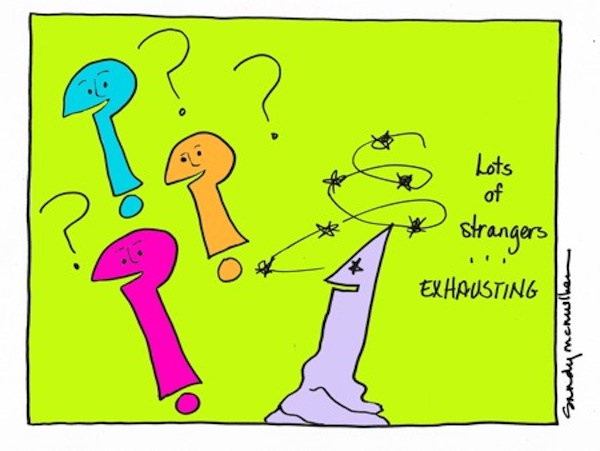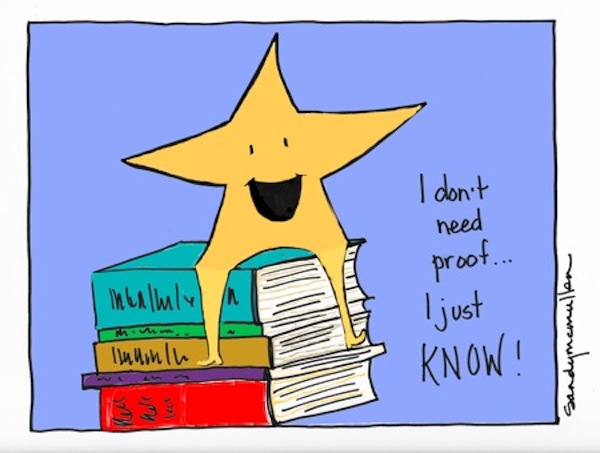
by Sandy | Mar 6, 2018 | MBTI Facts
It is such a challenge to step outside of our own perceptual filters. Imagine you are a parent who believes that your preference for Judging and providing structure and organization for your family will keep them safe and on track. This is your duty as a good parent – right?
Imagine you are the teenager in this family. You have a clear preference for Perceiving and prefer to go with the flow. The emphasis and value placed on a structured life that is the hallmark of your family seems restrictive and positively boring. You know you are really responsible and that your last minute style suits how you like to work.
The juggling act that is parenting teenagers has an extra wrinkle in this family dynamic with this difference in Judging and Perceiving. Hopefully understanding each others type will pave the way for compassion. The parent’s preference for Judging is not an intentional plot to squash the teenager’s spirit, and the teenager’s preference for letting life happen rather than planning ahead does not mean that they are doomed to failure.
There are some wonderful opportunities for growth in this relationship if both individuals can stay open to learning from each other.

by Sandy | Mar 5, 2018 | MBTI Facts
How do you react to the child who clings to their parent’s leg or retreats into their “shell” at Hello? In an article posted at Time.com author Susan Cain extols us not to label quiet, sensitive children as “shy”. She claims that we categorize children into 2 camps “social” and “shy” and favour those who are more out-going.
Cain points out that the label “shy” is typically a misnomer given to Introverted children. They are more sensitive to external stimuli and they will hold back to take things in before engaging. This does not mean that they are anti-social but “differently social”.
She points out the benefits of how these children approach things.
Children with an alert, sensitive temperament also pay close attention to social cues and moral principles. By age 6, they cheat and break rules less than other kids do — even when they believe they won’t be caught. At 7, they’re more likely than their peers to be described by parents and caregivers as empathetic or conscientious.

by Sandy | Mar 3, 2018 | MBTI Facts
Networking – you either love it or you don’t.
Some groups seem friendlier and less threatening than others.
Even though I have a preference for Extraversion I have an aversion to networking, but perhaps that is obvious in the tone of this post.
It is hard enough to explain my passions to people who know me well, but a roomful of strangers is daunting.
I understand that those with a preference for Introversion can be both competent and capable when it comes to networking. I can just imagine that a room full of strangers could result in an energy draining experience for many Introverts.

by Sandy | Feb 27, 2018 | MBTI Facts
When you ask someone with a preference for Intuition how they came to understand something to be true for them, they can come up with a logical rational explanation. If truth be told they often just know. Different threads come together so that those who prefer Intuition SEE the pattern and it all becomes clear. Then they seek to back it up with some rationale.
Those who are versed in developing critical thinking skills in decision making, may find relying on Intuition unreliable. I use my Intuition all the time. I also trust that I can distinguish when it is the kind of decision where it is necessary to take a more refined look weighing what I believe against critical criteria.
The thing is my Intuition has been a reliable guide at least 90% of the time.
How do I know that’s true – you may ask? I just know.

by Sandy | Feb 25, 2018 | Enneagram, MBTI Facts, Reiss Motivation Profile
Here is a question I received about reactions to needy people. Perhaps this also strikes a chord with you?
I run like crazy away from people that I see as needy or clingy. It’s top of mind right now because I went on a date last night and decided that the guy was insecure and needy and would need a lot of “coddling” and “taking care of”, and I thought, “I’m out of here; I so don’t want to do that for someone.”
But then I thought that when I have been in relationships – with guys that didn’t come across as needy – I *love* taking care of them. I go out of my way to do nice things and look out for them. But they need to not need it in order for me to want to do it.
I’ve noticed this in work contexts too – I don’t like working with people if I get a needy feeling from them; in fact, the more they say they need me the more I withdraw.
Any Enneagram 5 or INTJ/INFJ light that you would like to shed on this?
Since this reaction to needy people has also come up for me, I am curious to have a l look at what might be happening.
Through the lens of the MBTI
What first came to mind was the possible reaction that someone with a preference for Thinking might have toward someone with a preference for Feeling. For the Thinking type decision making is made through objective analysis and the more internal process of the Feeling preference can seem slow, inefficient, unreliable or illogical which could be interpreted as being “needy”.
People who may have a preference for Feeling but are out-of-preference on one or two aspects might also react in a similar fashion. My out-of preference for the Tough side of the Tough-Tender aspect of Thinking-Feeling has made some people’s “weighing all aspects” time consuming process seem exasperatingly slow and “bleeding-heart” . I avoid “needy” people because my fear is that they won’t stand on their own two feet and make the decisions that are necessary to make for themselves.
Through the lens of the Enneagram
I am wondering if some of this reaction is due to the level of development of the person. Any type who is unhealthy can elicit red flags warning us to steer clear. Riso and Hudson have done a wonderful job in describing the healthy and unhealthy states for each type.
The Enneagram Five is the type most likely to have radar that would signal that a needy person would impinge on their peace of mind. Feelings and emotion interfere with the Fives detached observer stance and is the number one thing to be avoided.
The Enneagram Eight would have a more assertive reaction to the needy person. Rather than withdrawing and avoiding them they would deal with someone who wasn’t willing to stand up and try in a direct manner. While an underdog who is willing to fight for themselves is championed, anyone who clings and shows their belly might be told to “Get a life.”
Each type would react differently to people perceived as being needy and I am curious about how people of other types react. It would be great to hear your perspective.
Through the lens of the Reiss Desire Profile
When I was pondering my response to this query, the insights from the Reiss Desire Profile leapt to mind. Three of the 16 basic psychological needs might each have some influence here: the need for Acceptance, the need for Independence and the need for Social Contact.
The need for Acceptance relates to the need for approval. Anyone with a high need in this area can be seen as being needy. If you happen to have this as a need, you will never succeed in making it disappear. What you can do is recognize and accept it and design ways to get this need filled. Part of the trouble comes when people expect others in their inner circle, at work or random contacts to accommodate this need instead of being intentional in getting it met.
How does one do that? I’m not sure what would work for any individual but perhaps an example will help get the wheels turning. Mary Kay Cosmetics in the hay day of building their organization gave away pink Cadillacs plus many other public ways of showing recognition in a culture based on Acceptance. If someone can get their need met in one aspect of their life they will not have to generalize it to every situation.
Imagine that you are someone with a low need for Acceptance, a high need for Independence and a low need for Social Contact… if this profile or any combination of these desires fits you think about how you typically react to needy people.
What if we could use the information we glean from assessment tools to shift our reactions from personal to objective, we might reduce the temptation to judge or blame and instead get curious about what we can learn about how to work with people of all levels and types of needs.





